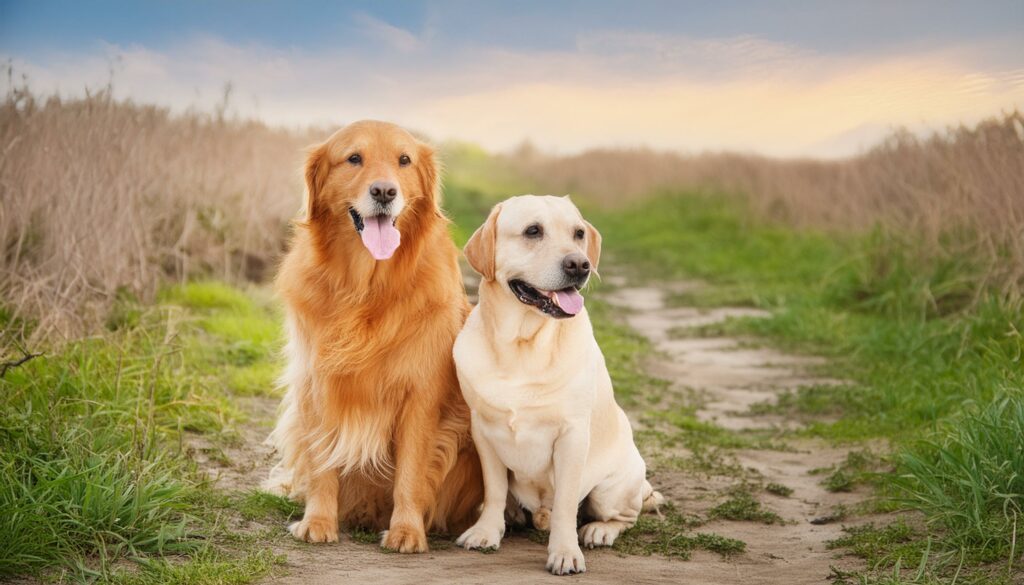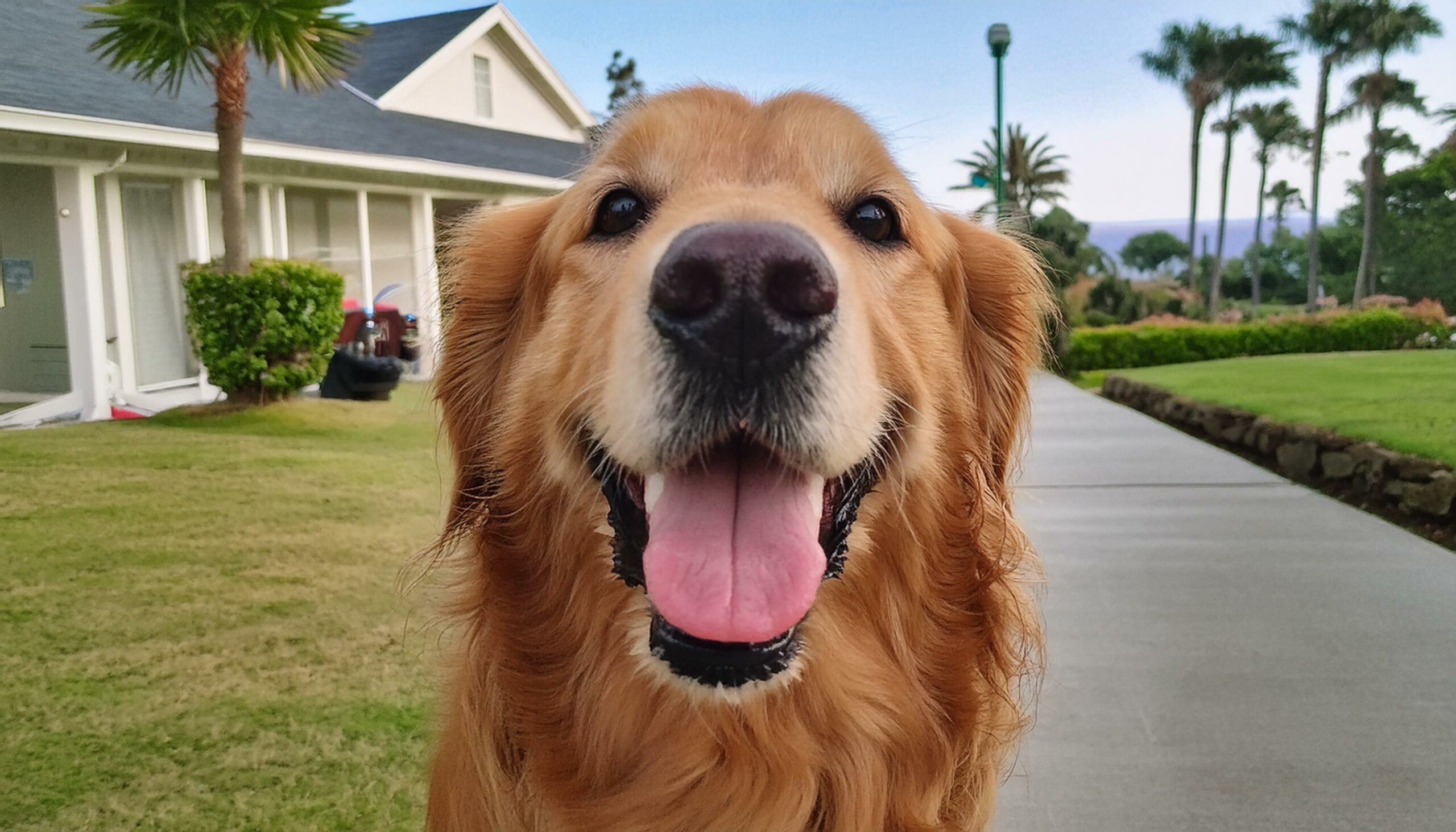Golden Retrievers are renowned for their friendly demeanor and affectionate nature, making them cherished companions in countless households. As devoted pet owners, ensuring the happiness and well-being of our Golden Retrievers is a top priority. But how can we discern if our beloved canine friends are genuinely happy? Understanding their behavior and identifying signs of contentment are crucial aspects of nurturing a fulfilling relationship with our Golden Retrievers.
Understanding Dog Behavior
Natural Behavior of Golden Retrievers
Golden Retrievers possess an innate sociability and an earnest desire to please their owners. Their amiable and outgoing personalities are characteristic of the breed. Familiarizing ourselves with their natural tendencies is fundamental in evaluating their happiness.
Signs of Happiness in Dogs
Dogs, including Golden Retrievers, communicate their emotions primarily through body language and behavior. Recognizing these cues is imperative in gauging their emotional well-being.
Physical Signs of a Happy Golden Retriever
Body Language
A contented Golden Retriever typically exhibits relaxed body language. Their posture is loose and open, devoid of any signs of tension or rigidity. Additionally, they may engage in playful movements, such as bounding or rolling over, indicative of their joyous disposition.
Tail Wagging
Tail wagging is often synonymous with happiness in dogs, although context is key. A broad, sweeping wag accompanied by a relaxed body signifies excitement and joy. Conversely, a stiff, rapid wag may denote agitation or alertness, warranting further observation.
Ears and Eyes
Observing the ears and eyes of a Golden Retriever can also provide insights into their emotional state. A happy dog will typically have relaxed ears held in a neutral position. Their eyes will be bright and alert, emanating a warm and friendly gaze. Conversely, dilated pupils and a furrowed brow may indicate stress or discomfort.
Behavioral Signs of Happiness
Playfulness
Playfulness is a hallmark of a happy Golden Retriever. Engaging in playful behavior, such as chasing toys, frolicking, and participating in interactive games with their owners, is indicative of their contented state.
Appetite and Eating Habits
An enthusiastic appetite is another indicator of a happy dog. A Golden Retriever that eagerly anticipates meal times and exhibits healthy eating habits is likely experiencing contentment and satisfaction.
Affection and Cuddling
Golden Retrievers are affectionate creatures that thrive on physical contact. Seeking out cuddles and affection from their owners, leaning into pets, and snuggling up close are behaviors commonly displayed by happy dogs.
Environmental Factors Affecting Happiness

Comfortable Living Space
Creating a comfortable and nurturing environment is essential for fostering the happiness of your Golden Retriever. Providing them with cozy bedding, toys for mental stimulation, and a designated space where they can retreat and relax is paramount.
Social Interaction
Golden Retrievers thrive on human companionship and require regular interaction to thrive. Engaging in activities such as playtime, walks, and bonding moments with their owners contributes significantly to their emotional well-being.
Regular Exercise
Regular exercise is vital for maintaining the happiness and overall health of a Golden Retriever. Daily walks, games of fetch, and outdoor adventures not only provide physical stimulation but also mental enrichment, ensuring a fulfilled and contented pet.
Understanding Changes in Behavior
Stress or Anxiety
Changes in behavior, such as excessive barking, destructive chewing, or withdrawal, may indicate stress or anxiety in your Golden Retriever. Identifying and addressing the underlying cause promptly is essential in restoring their happiness and well-being.
Health Issues
Health problems can significantly impact your Golden Retriever’s happiness. Monitoring them closely for signs of illness or discomfort, such as lethargy, loss of appetite, or unusual behavior, and consulting with your veterinarian when necessary, is crucial in maintaining their happiness.
Conclusion
Understanding your Golden Retriever’s behavior and recognizing signs of happiness are pivotal in nurturing a fulfilling and harmonious relationship. By paying attention to their body language, behavior, and environmental needs, you can ensure that your furry companion leads a joyful and contented life by your side.
FAQs
How can I make my Golden Retriever happy?
Creating a stimulating environment with ample opportunities for play, exercise, and social interaction is key to keeping your Golden Retriever happy. Additionally, providing love, affection, and positive reinforcement strengthens your bond and contributes to their overall well-being.
Is tail wagging always a sign of happiness?
While tail wagging is commonly associated with happiness, it’s essential to consider the context. A relaxed, broad wag typically indicates joy, but a stiff or rapid wag may signify other emotions, such as agitation or alertness.
Should I be concerned if my Golden Retriever is not eating?
A sudden loss of appetite can be concerning and may indicate underlying health issues or stress. Monitoring your Golden Retriever closely and consulting with your veterinarian if their eating habits change significantly or persist over time is advisable.
Can a change in routine affect my dog’s happiness?
Golden Retrievers thrive on routine and consistency, so significant changes in their environment or daily schedule can impact their happiness. Introducing changes gradually and providing reassurance and positive reinforcement helps them adjust more smoothly.
How often should I take my Golden Retriever for walks?
Golden Retrievers are active and energetic dogs that require regular exercise to stay happy and healthy. Aim for at least one hour of physical activity per day, divided into multiple walks or play sessions to keep them mentally and physically stimulated.
